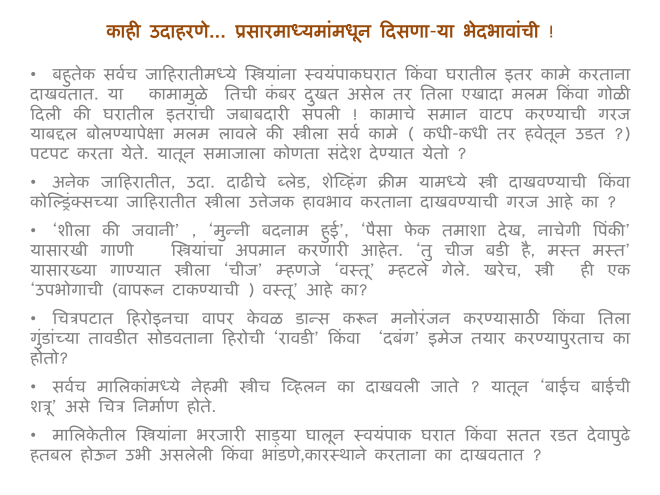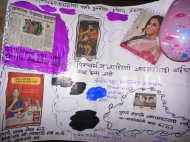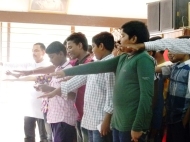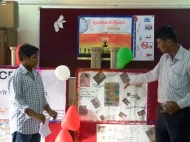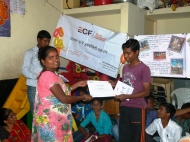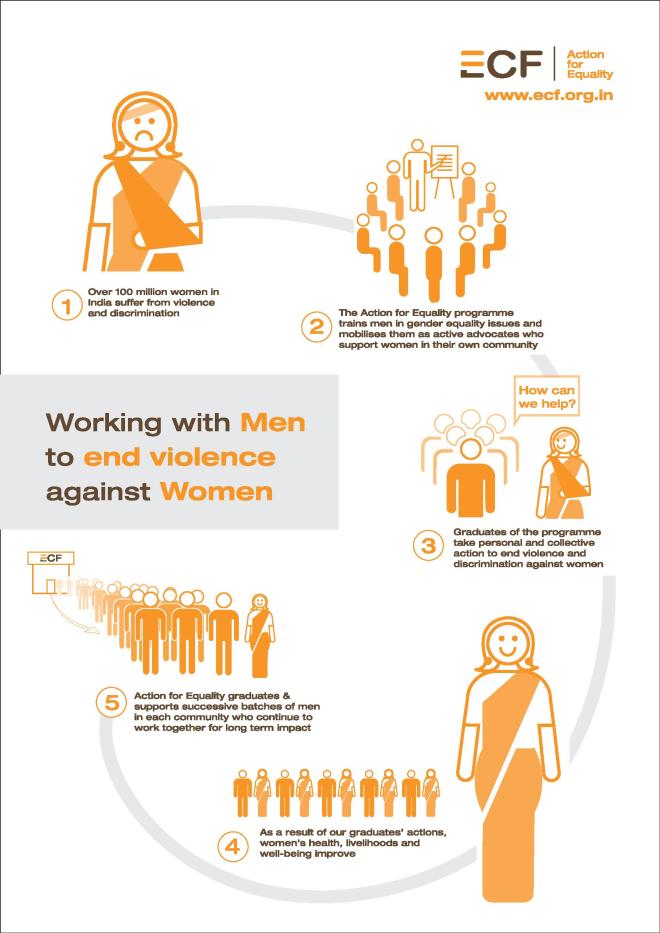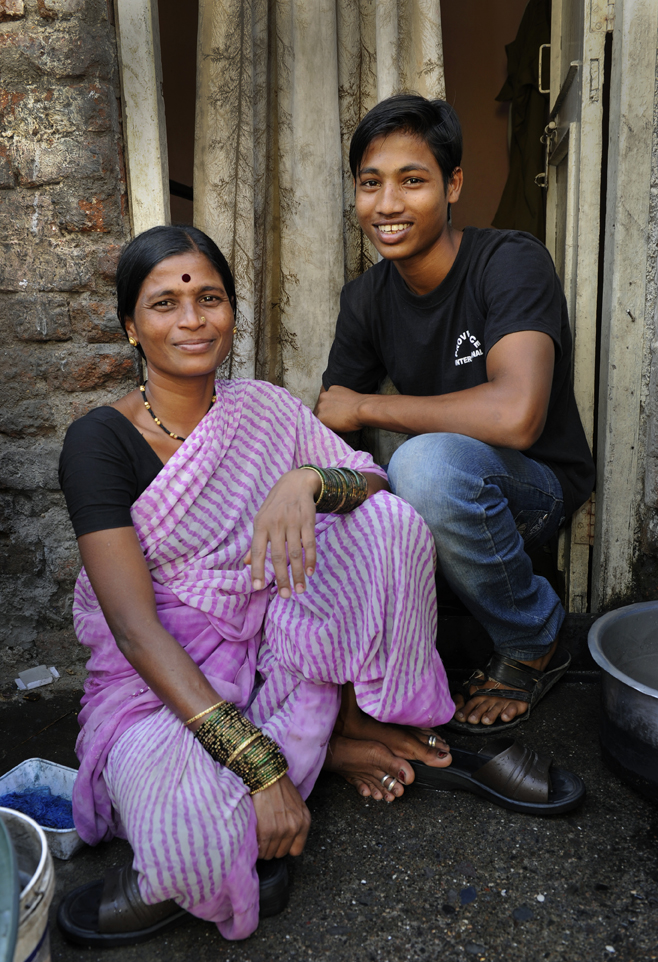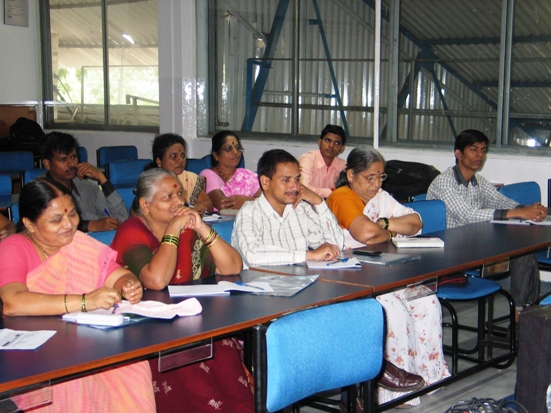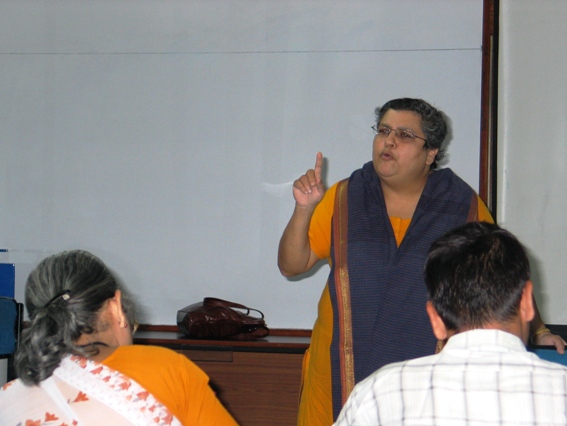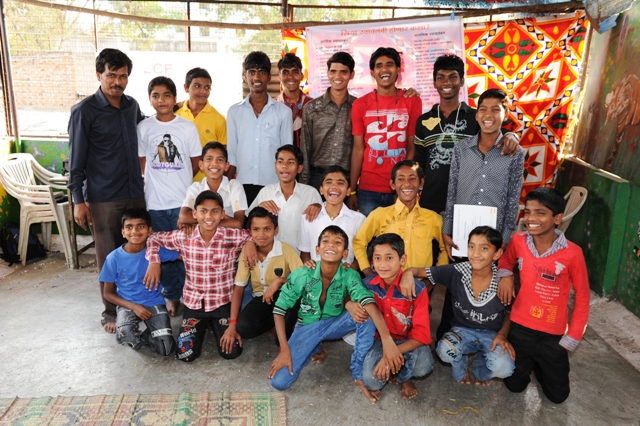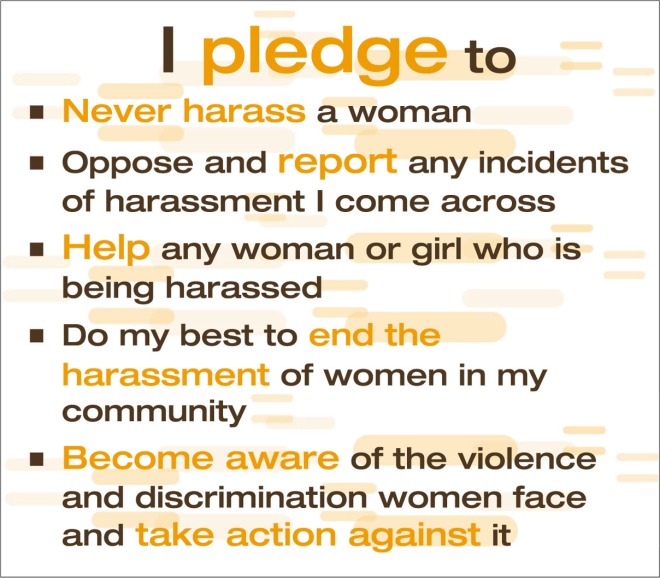इक्वल कम्युनिटी फाउंडेशन आपल्या एक्शन फॉर इक्वलिटी या कार्यक्रमाच्या माध्यमातून विषमतेवर आधारित पुरुषी मानसिकता बदलण्याचा प्रयत्न करत आहे. १५ आठवड्यांच्या प्रशिक्षण कार्यक्रमाच्या शेवटच्या दोन आठवड्यामध्ये यातील सहभागी मुले काही कृती कार्यक्रम (Action event) करत असतात. नुकत्याच संपलेल्या आठव्या प्रशिक्षण कार्यक्रमानंतर “लिंगभाव आणि प्रसारमाध्यमे” याविषयावर कृती कार्यक्रम करण्यात आला.
For an English translation of this blog article please click here.
कोणताही प्रश्न सोडविण्यासाठी, अगोदर तो प्रश्न आहे याची जाणीव झाली पाहिजे. त्याचप्रमाणे आजच्या नव्या पिढीतील पुरुषांनी स्त्रियांसोबत होणा-या भेदभाव आणि हिंसेच्या विरोधात उभे राहावे, कृती करावी असे वाटत असेल तर अगोदर त्यांच्या स्वतःच्या आसपासच्या वातावरणात असणारे या प्रश्नाचे अस्तित्व आणि स्वरूप त्यांना जाणवले पाहिजे.
समाजावर प्रसारमाध्यमांचा खूप मोठा प्रभाव पडत असतो. त्यातून लोक अनुकरण करत असतात. मात्र आजकाल सर्वच प्रसारमाध्यमांमध्ये स्त्री आणि पुरुष यांना लिंगभेदावर आधारित चौकटीत अडकविण्याचा प्रयत्न होताना दिसतो. या कृतीकार्यक्रमाच्या माध्यमातून मुलांनी वर्तमानपत्रे, जाहिरात, चित्रपट, गाणी, टी.व्ही. मालिका यामध्ये दिसणारी विषमता शोधण्याचे, समजून घेण्याचे प्रयत्न केले.
अशा अनेक मुद्यांवर मुलांनी सविस्तर चर्चा करून वर्तमानपत्रे, मासिके यातून कात्रणे काढली. त्या कात्रणांच्या सहाय्याने सुंदर कोलाज पोस्टर्स बनवली. या प्रशिक्षण कार्यक्रमाच्या सहभागाबद्दल दिल्या जाणा-या प्रमाणपत्र प्रदान कार्यक्रमात उपस्थित असणा-या पालक आणि वस्तीतील इतर लोकांसमोर त्याचे सादरीकरण करून चर्चा घडवून आणली. इतकेच नाही तर, आपण स्वतः कधी हिंसा आणि भेदभाव करणार नाही आणि इतरांना करू देणार नाही, याबद्दल आपल्या मित्रांमध्ये आणि समाजात जनजागृती करू अशी सर्वांनी प्रतिज्ञा घेतली.
Young men from the AfE programme discussing posters, taking the pledge and receiving certificates. For more pictures from the action event click here.
आम्हाला याची पूर्ण जाणीव आहे की, केवळ अशा पोस्टर्स आणि चर्चा यातून लगेच आणि फार मोठा बदल होणार नाही; तशी अपेक्षाही नाही. मात्र या निमित्ताने स्वतःच्या घरात आणि आसपास राहणा-या मुलींच्या, स्त्रियांच्या आयुष्यातील भेदभाव आणि हिंसा याबद्दल १८ वस्त्यांमधील २०२ मुलांच्या मनात काही प्रमाणात जाणीव निर्माण झाली. ही निर्माण झालेली जाणीव आणि त्या जाणीवेतून या लिंगभेदाबद्दल लोकांशी चर्चा घडवून आणण्याचा त्यांनी केलेला छोटासा पण महत्वपूर्ण प्रयत्न, हा समतेवर आधारित समाजाच्या उभारणीच्या दिशेने पडलेले एक मोलाचे पाऊल असेल, हे मात्र नक्की !
– Shrikant LaxmiShankar | Programme Development Associate | Equal Community Foundation

